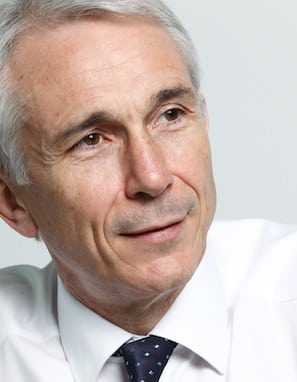Airline Group CEO Blasts 'Draconian' Tarmac-Delay Rules
Skift Take
The CEO of IATA, the global airline trade group, blasted U.S. airline tarmac delay rules, arguing that they don't serve passengers, and hurt airlines and the broader economy.
Asked by Skift during a question-and-answer session on Thursday at the Wings Club in New York for his tarmac-delay solution absent regulation, Tony Tyler, the IATA CEO, called the current rules "draconian," and contended that market forces and social media provide solutions.
"The world sees it," Tyler said, referring to tarmac-delay episodes. "It's impossible for airlines to hide it. If it gets screwed up, it is seen."
Earlier, during his prepared speech, Tyler attacked what he sees as over-regulation of airlines, adding that "regulators are micro-managing our businesses, telling us how we may advertise services, how long we must hold a reservation that has not been paid for, and how we may compensate and care for passengers when there are disruptions, even in situations were airlines are not responsible for the disruption."
He noted that the U.S. DOT's tarmac-delay regulations, which went into effect in 2011, eliminated hours-long delays on airport tarmacs, but left many passengers unable to get to their destinations because of cancelled flights.
Citing a GAO study, Tyler said "the number of flight cancellations increased by more than 5,000 over similar time periods before the passenger rights rule went into effect," and cost passengers $9 billion annually in "lost time."
Tyler's stance that less regulation, market forces, and social media would deter tarmac delays doesn't counter the fact that airlines did little to resolve the issue on their own before the rules went into effect.
And, relying on market forces isn't much of an answer given the fact that many passengers don't have much choice as to which airline to fly, given U.S. airlines' capacity cuts, consolidation, and lack of service at non-hub airports.
Social media can be pretty good after the fact, but tweets, Facebook updates and YouTube videos might not necessarily get passengers off the tarmac in a hurry in the heat of the moment.
American Airlines-US Airways Merger
On other issues, during a press briefing with a handful of reporters, Tyler said it would be "extraordinary" if the American Airlines and US Airways merger doesn't ultimately take place.
The Department of Justice and state attorneys general have sued to block the deal on antitrust grounds, and further negotiations and court dates loom.
"I have no doubt that common sense will prevail," Tyler said, offering his view of what constitutes common sense.
New Distribution Capability
On IATA's initiative to implement a new XML standard, the New Distribution Capability, officials said they expect the DOT to rule on and approve the proposal before the end of 2013. NDC would provide a technology standard to enable airlines to broaden the distribution of their products, including preferred seats, meals and other add-ons, to travel agents and online travel agencies.
The U.S. DOT is the only global regulatory body to weigh in on the issue, and Tyler said IATA wouldn't go ahead with NDC in the unlikely scenario that the DOT doesn't approve it.






